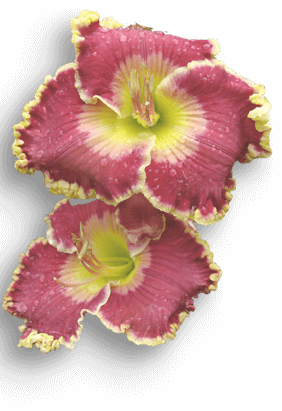(Noun) The state of having more than two sets of chromosomes in a plant’s cells. In daylilies, a single set has 11 chromosomes, which can be abbreviated as “n”. The ploidy number is given by a number followed by “n”. The names of the ploidy numbers are given Greek numeric prefixes:
Triploidy 3n=33 (Adjective: triploid)
Tetraploidy 4n = 44 (Adjective: tetraploid)
Pentaploidy 5n = 55 (Adjective: pentaploid)
Hexaploidy 6n = 66 and so on
Also see: ploidy, polyploid, diploid, haploid, triploid, tetraploid, aneuploid, chromosome

